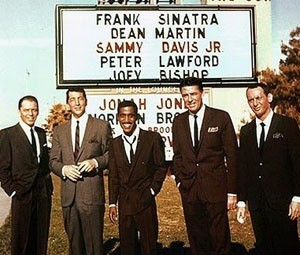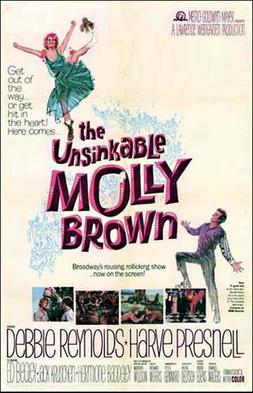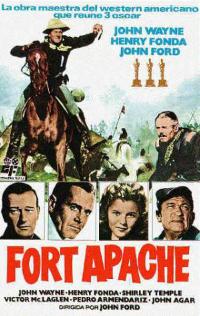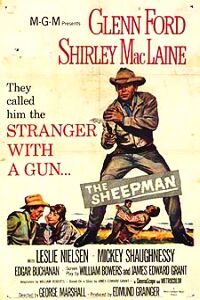
Leslie William Nielsen was a Canadian-American actor and comedian. With a career spanning 60 years, he appeared in more than 100 films and 150 television programs, portraying more than 220 characters.

Shirley MacLaine is an American actress and author. Known for her portrayals of quirky, strong-willed and eccentric women, she has received numerous accolades over her eight-decade career, including an Academy Award, an Emmy Award, two BAFTA Awards, six Golden Globe Awards, two Volpi Cups and two Silver Bears. She has been honored with the Film Society of Lincoln Center Tribute in 1995, the Cecil B. DeMille Award in 1998, the AFI Life Achievement Award in 2012, and the Kennedy Center Honor in 2013.

The Rat Pack was an informal group of entertainers, the second iteration of which ultimately made films and appeared together in Las Vegas casino venues. They originated in the late 1940s and early 1950s as a group of A-list show business friends, such as Errol Flynn, Nat King Cole, Mickey Rooney, Frank Sinatra and others who met casually at the Holmby Hills home of Humphrey Bogart and Lauren Bacall. In the 1960s, the group featured Sinatra, Dean Martin, Sammy Davis Jr., Joey Bishop, and Peter Lawford, among others. They appeared together on stage and in films in the 1950s and 1960s, including the films Ocean's 11 and Sergeants 3; after Lawford's expulsion, they filmed Robin and the 7 Hoods with Bing Crosby in what was to have been Lawford's role. Sinatra, Martin, and Davis were regarded as the group's lead members after Bogart's death.

Irma la Douce is a 1963 American romantic comedy film directed by Billy Wilder from a screenplay he co-wrote with I. A. L. Diamond, based on the 1956 French stage musical of the same name by Marguerite Monnot and Alexandre Breffort. The film stars Jack Lemmon and Shirley MacLaine.

The Unsinkable Molly Brown is a 1964 American Western musical comedy film directed by Charles Walters and starring Debbie Reynolds, filmed in Panavision. The screenplay by Helen Deutsch is based on the book of the 1960 musical of the same name by Richard Morris. The song score was composed by Meredith Willson. The plot is a fictionalized account of the life of Margaret Brown, who survived the 1912 sinking of the RMS Titanic. Reynolds was nominated for the Academy Award for Best Actress for her portrayal of Brown.

Gwyllyn Samuel Newton Ford, known as Glenn Ford, was a Canadian-American actor. He was most prominent during Hollywood's Golden Age as one of the biggest box-office draws of the 1940s, 1950s, and 1960s, who had a career that lasted more than 50 years.

Cimarron is a 1960 American epic Western film based on the Edna Ferber novel Cimarron. The film stars Glenn Ford and Maria Schell and was directed by Anthony Mann and Charles Walters, though Walters is not credited onscreen. Ferber's novel was previously adapted as a film in 1931; that version won three Academy Awards.

Charles Powell Walters was an American Hollywood director and choreographer most noted for his work in MGM musicals and comedies from the 1940s to the 1960s.

3:10 to Yuma is a 1957 American Western film directed by Delmer Daves, starring Glenn Ford and Van Heflin. Based on a 1953 short story by Elmore Leonard, it is about a drought-impoverished rancher who takes on the risky job of escorting a notorious outlaw to justice.

Patrick John Morrison, better known by his stage name Patrick Wayne, is an American actor. He is the second son of movie star John Wayne and his first wife, Josephine Alicia Saenz. He made over 40 films, including eleven with his father.

Fort Apache is a 1948 American Western film directed by John Ford and starring John Wayne and Henry Fonda. The film was the first of the director's "Cavalry Trilogy" and was followed by She Wore a Yellow Ribbon (1949) and Rio Grande (1950), both also starring Wayne. The screenplay was inspired by James Warner Bellah's short story "Massacre" (1947). The historical sources for "Massacre" have been attributed both to George Armstrong Custer and the Battle of Little Bighorn and to the Fetterman Fight.

George E. Marshall was an American actor, screenwriter, producer, film and television director, active through the first six decades of film history.

Ransom! is a 1956 American crime drama film about the kidnapping of the son of a wealthy couple. Written by Richard Maibaum and Cyril Hume, the film is based on a popular 1954 episode of The United States Steel Hour titled "Fearful Decision" starring Ralph Bellamy.

Pedro Gonzalez Gonzalez was an American character actor best known for his appearances in a number of John Wayne movies.

The Man from Colorado is a 1948 American Western film directed by Henry Levin, produced by Jules Schermer for Columbia Pictures, and starring Glenn Ford as a Union officer who becomes addicted to killing during the American Civil War, William Holden as his best friend, and Ellen Drew as their common love interest. Robert Andrews and Ben Maddow based the screenplay on a story by Borden Chase. Although Ford received top billing as the mentally ill villain, Holden's role as the sympathetic hero is slightly larger.

Willis Bouchey was an American character actor.
Luv is a play by Murray Schisgal. The production originated on Broadway in 1964. The production was directed by Mike Nichols and featured performances from Alan Arkin, Eli Wallach, and Anne Jackson.
James Edward Grant was an American short story writer, screenwriter and film director, who contributed to more than fifty films between 1935 and 1971. He collaborated with John Wayne on twelve projects, starting with Angel and the Badman in 1947 through Circus World in 1964. Support Your Local Gunfighter was released in 1971, five years after his death.

Sweet Charity is a 1969 American musical comedy-drama film directed and choreographed by Bob Fosse in his feature directorial debut, written by Peter Stone, and featuring music by Cy Coleman and Dorothy Fields.

Montana is a 1950 American Western film directed by Ray Enright and starring Errol Flynn. It was only the second time Flynn played an Australian on screen, the first time being Desperate Journey (1942).


















